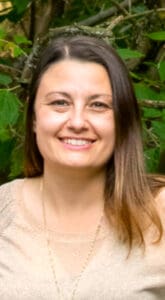I am a gerontechnologist and mixed-methodologist. My work examines how emerging technology use, such as virtual reality, may impact the overall health and well-being of the older adult community. With an emphasis on social connectivity, I develop technological interventions designed to promote independence and mitigate the negative consequences of social isolation. A primary consideration in the research I perform is how the digital divide may impact my participants from realizing the true benefits of technology and how to bridge that gap.
In May of 2024, I received a K01 award from the National Institute on Aging (1K01AG083120-01A1). In fulfillment of this award I am currently developing a comprehensive training program to build new skills and to explore how VR may reduce the pressing risk of ADRD among older adults who live alone. My study, entitled “Virtual Convoys: A Social VR Approach to Reducing ADRD risk among Older Adults Living Alone,” will contribute to our understanding of the social determinants of cognitive health and the potential for emerging technologies such as VR to promote independent aging. I will conduct feasibility and acceptability testing of a multimodal, social VR study that will target social and interpersonal processes as promoted and facilitated by VR immersion and interactivity, which have been shown to benefit cognition. The goal is to identify the mechanisms of social VR that may promote and sustain social interaction among older adults who might be at risk for social isolation and ultimately ADRD. The feasibility and acceptability studies will be conducted in the Institute for Social Research’s HomeLab under the mentorship of Drs. Toni Antonucci, Richard Gonzalez, Elaine Wethington, and Mark Newman.
